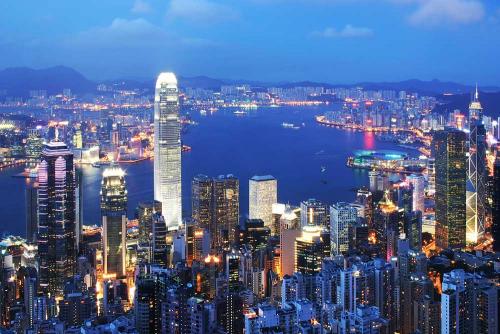Asia-Pacific cannot afford to grow without addressing environmental concerns – UN
Countries in the Asia-Pacific region must find ways to continue to grow economically and lift millions out of poverty while also responding to climate change and environmental concerns, according to a United Nations report released today, which stresses that new methods of production are needed to meet this goal.

Asia-Pacific’s share of world domestic material consumption grew from under 25 percent in 1975 to over 53 per cent by 2005
“The world’s common future will be hugely affected by the choices that are made in Asia and the Pacific on a low carbon growth path,” the UN Development Programme (UNDP) Regional Director for Asia and the Pacific, Ajay Chhibber, said in relation to the report. “The goal is clear: reduce poverty, increase prosperity, but leave a smaller carbon footprint.”
UNDP’s Asia-Pacific Human Development Report 2012 argues that policies and actions in the region will have a global impact as it is home to more than half of the world’s population and half of the planet’s megacities.
However, it stresses that countries in the region will need to change to change the way they manufacture goods, raise crops and livestock, and generate energy; shifting to greener, more resilient, lower-emission options that sustain the environment and offer employment opportunities for the poor.
“Countries of the developing Asia-Pacific are much less locked into the old, carbon-intensive ways of production and consumption. Asia-Pacific not only has the imperative, it also has the opportunity to manage development differently,” the report states.
To be able to shift to a greener economy, the report emphasizes that there must be a change in the region’s energy production industry and agricultural practices. Currently, around 85 per cent of the region’s primary energy comes from fossil fuels in the form of coal, natural gas and oil; and its accounts for 37 per cent of the world’s emissions from agricultural production, including through growing crops and raising livestock, land use changes and deforestation.
Income disparity is also a key issue highlighted by the report. While there are more than 2.5 billion mobile phone subscriptions, half of the region’s population – 1.9 billion people – lack basic services, such as access to flush toilets. It says that closing this gap will put pressure on the region’s natural resources, which will require implementation of sustainable measures.
The Asia-Pacific Human Development Report 2012, which aims to reinvigorate the dialogue on climate change by bringing people’s concerns into the fore in the lead-up to the UN Sustainable Development Conference (Rio+20), provides a series of recommendations for a lower-carbon development path.
These recommendations include increasing the use of greener agriculture, supporting cleaner energy generation, and providing access to modern services such as electricity and cleaner cooking fuels to the rural poor. In addition, the report stresses that a greater awareness and education among citizens about sustainable measures can have a significant impact in innovation and the creation of sustainable jobs for youth.
Source: UN NEWS
- 499 reads
Human Rights
Fostering a More Humane World: The 28th Eurasian Economic Summi

Conscience, Hope, and Action: Keys to Global Peace and Sustainability

Ringing FOWPAL’s Peace Bell for the World:Nobel Peace Prize Laureates’ Visions and Actions

Protecting the World’s Cultural Diversity for a Sustainable Future

Puppet Show I International Friendship Day 2020

